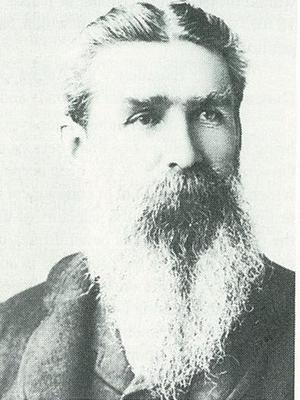What’s In a Name delves into the fascinating stories and personalities behind some of the city’s best-known street names. This week the Journal looks at Hutton Road in Keysborough, named after a war veteran and shire president.
Colonel Thomas Bruce Hutton was born in India, educated in England and in January 1855 joined the army.
He accompanied his regiment to the Crimea, was present at the siege and fall of Sebastopol and took part in the expedition to Kinbourn.
He received a medal and clasp from the Queen for his services, and a Turkish medal.
Col Hutton then served with the 61st regiment in India and was present at the siege, assault, and capture of Delhi during the mutiny in 1857.
For these services he received a medal and clasp and was subsequently appointed Lieutenant Governor of Delhi on the city’s capture.
The Argus newspaper reported that Col Hutton was promoted lieutenant-colonel for his services in the field in 1872, retired from the army that same year and moved to Australia.
He’s said to have arrived in Noble Park in 1873 where he bought a property named Cumberoona, bordered by Corrigan Road, the railway line, Heatherton Road, Chandler Road and Princes Highway.
Newspapers in February 1872 reported that the Australian Government had sent word to England for an experienced military officer to take charge of the country’s volunteer force, and placed Col Hutton in temporary command.
The Argus in April 1879 reported that Col Hutton had resigned from the position on the grounds that he was “dissatisfied with the manner in which the Victorian volunteer force is administered”.
The Journal’s previous incarnation, the South Bourke and Mornington Journal, in October 1892 reported that Dandenong Council president Jas Greaves made a presentation to his predecessor, Col Hutton.
Col Hutton had been a councillor for 16 years, during 12 of which he “creditably filled the presidential chair”.
“It showed that both the ratepayers and the council thought very highly of him,” the report said.
“He was also at present president of the Dandenong Agricultural Society, and, in fact took a leading part in all local affairs.”
The Journal reported at the time that in response, Col Hutton said he’d always tried to act conscientiously and impartially and did not think he had a single enemy in the district.
“He had travelled a great deal and had served in the Imperial Army,” the Journal said.
“And he had also had the honour of being presented to Her Majesty the Queen, but he had never spent such a peaceful and happy time as he had passed since his residence in Dandenong.”
The Berwick Shire News and Pakenham and Cranbourne Gazette reported on 18 November 1914 that city coroner Dr Cole “held an inquiry at the morgue on Saturday last touching the death of Colonel Thomas Bruce Hutton, who met his death at Dandenong on the 10th of last month”.
He was aged 80.
“Evidence was given that the deceased was subject to fits, and it was believed that he had accidentally overturned a lamp, thereby setting his room on fire,” the paper reported.
“The medical evidence showed that death had resulted from suffocation by smoke, the burns on the body having occurred subsequently. A verdict of accidental death from suffocation was recorded.”
Want to know the history behind a street name in Greater Dandenong? Let us know and we’ll find out! Email journal@starnewsgroup.com.au.







